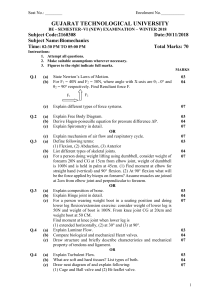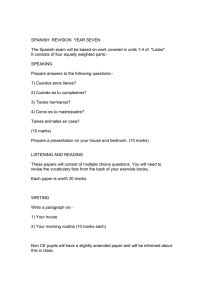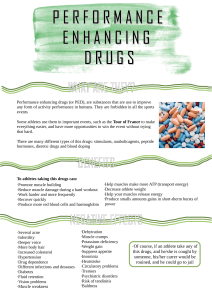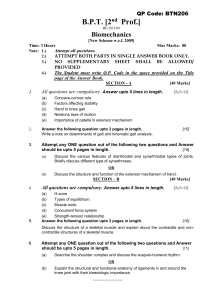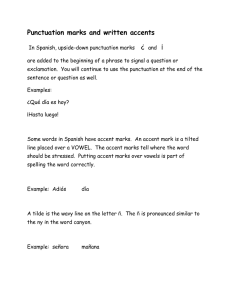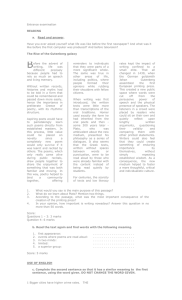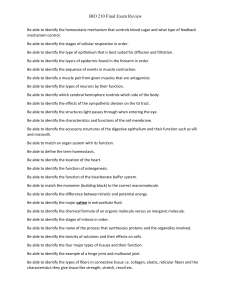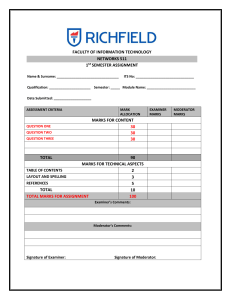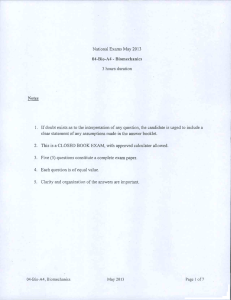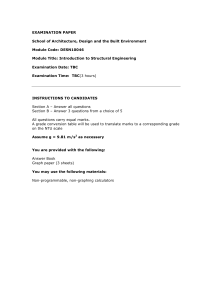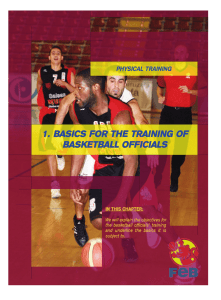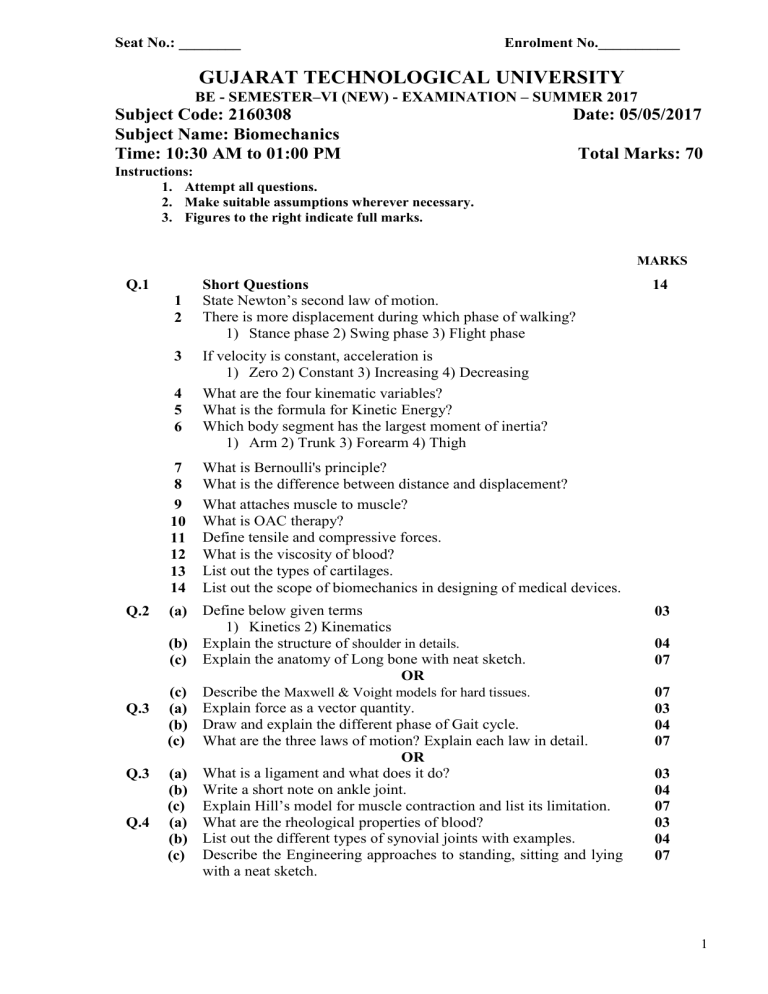
Seat No.: ________ Enrolment No.___________ GUJARAT TECHNOLOGICAL UNIVERSITY BE - SEMESTER–VI (NEW) - EXAMINATION – SUMMER 2017 Subject Code: 2160308 Subject Name: Biomechanics Time: 10:30 AM to 01:00 PM Date: 05/05/2017 Total Marks: 70 Instructions: 1. Attempt all questions. 2. Make suitable assumptions wherever necessary. 3. Figures to the right indicate full marks. MARKS Q.1 1 2 3 4 5 6 7 8 9 10 11 12 13 14 Q.2 Q.3 Q.3 Q.4 Short Questions State Newton’s second law of motion. There is more displacement during which phase of walking? 1) Stance phase 2) Swing phase 3) Flight phase 14 If velocity is constant, acceleration is 1) Zero 2) Constant 3) Increasing 4) Decreasing What are the four kinematic variables? What is the formula for Kinetic Energy? Which body segment has the largest moment of inertia? 1) Arm 2) Trunk 3) Forearm 4) Thigh What is Bernoulli's principle? What is the difference between distance and displacement? What attaches muscle to muscle? What is OAC therapy? Define tensile and compressive forces. What is the viscosity of blood? List out the types of cartilages. List out the scope of biomechanics in designing of medical devices. (a) Define below given terms 1) Kinetics 2) Kinematics (b) Explain the structure of shoulder in details. (c) Explain the anatomy of Long bone with neat sketch. OR (c) Describe the Maxwell & Voight models for hard tissues. (a) Explain force as a vector quantity. (b) Draw and explain the different phase of Gait cycle. (c) What are the three laws of motion? Explain each law in detail. OR (a) What is a ligament and what does it do? (b) Write a short note on ankle joint. (c) Explain Hill’s model for muscle contraction and list its limitation. (a) What are the rheological properties of blood? (b) List out the different types of synovial joints with examples. (c) Describe the Engineering approaches to standing, sitting and lying with a neat sketch. 03 04 07 07 03 04 07 03 04 07 03 04 07 1 OR Q.4 Q.5 Q.5 (a) Define below given terms 1) Couette flow 2) Laminar flow 3) Turbulent flow Describe the role of Hagen-poiseuille equation for biofluid (b) mechanics. (c) With a neat diagram explain the mechanical property of Cartilage. 03 (a) Draw the structural organization of skeletal muscle. (b) Explain the manufacturing process of implants. (c) Write a short note on types of joint in the body. OR (a) Draw a blood flow model. (b) Describe the material properties of muscles. (c) Explain the different types of prosthetic heart valves with its working principles 03 04 07 04 07 03 04 07 ************* 2
